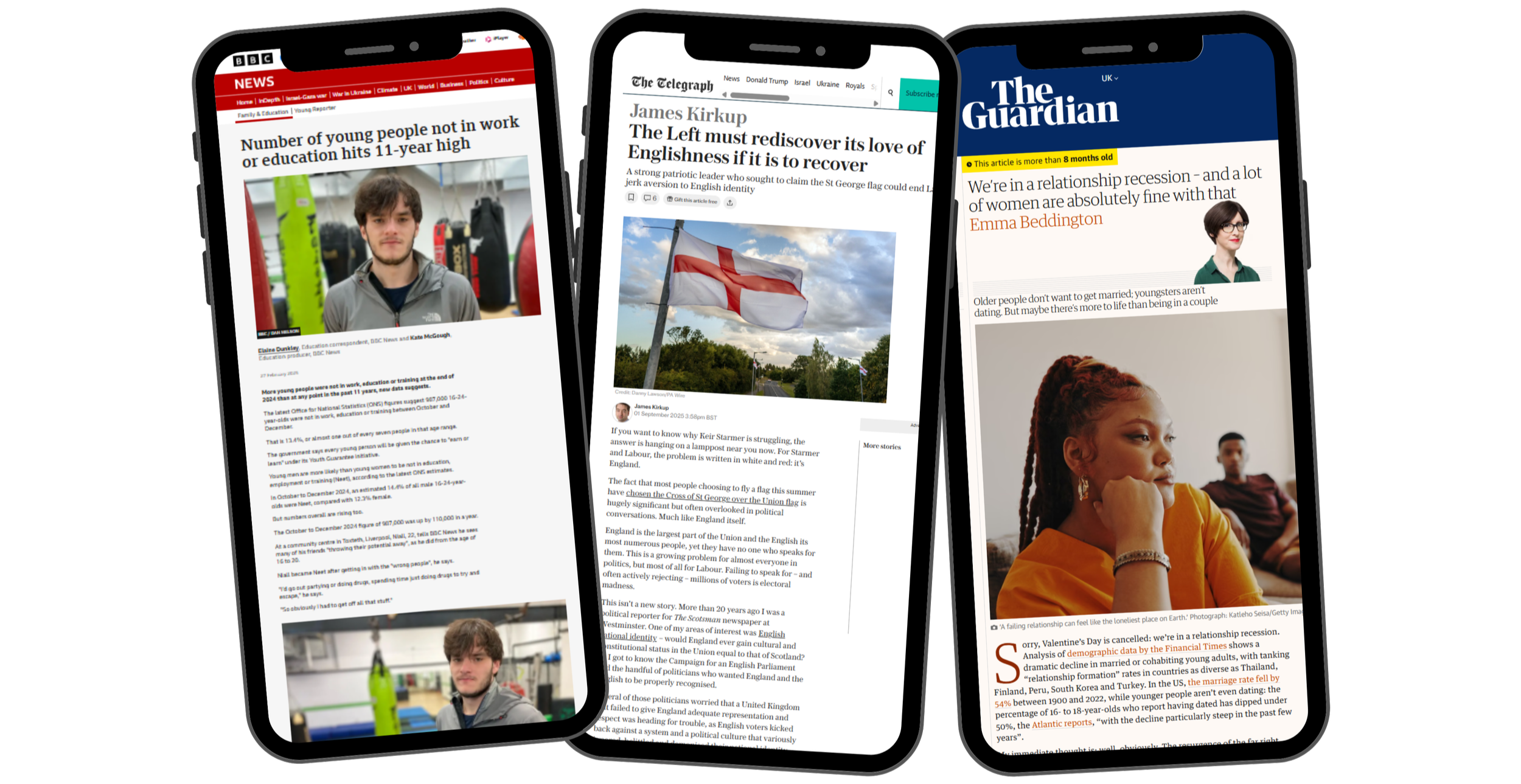
If you’ve been following the news and general commentary recently, you’ve probably seen a host of stories with headlines such as:
These stories cover big, society-wide issues that should be discussed and understood.
But we know from working with hundreds of policy professionals, thought leaders and academics that the nuance and complexity inherent within them are rarely captured in comment pieces and sporadic poll or survey results.
What, then, is the best way to actually understand what the public think, feel and do?
How do those entering and leaving the work force think about work and their future?
How are young people approaching dating and intimate relationships?
What makes people feel connected - or disconnected - from their local area?
What does ‘community’ mean to people in different generations
How do people talk about their national identity and what it means to be British?
An online-first approach has become standard practice in social research – and it shows. If you wanted to really understand any other country’s people and culture, you wouldn’t settle for a few video calls or focus groups. You’d go there. You’d walk the streets, visit people’s homes, spend time with them. Yet this basic principle is routinely ignored when researching some of the most important questions facing the UK. The public feel disconnected from policy makers. Discourse is fragmented. Politics is polarised. Perhaps the way the majority of research is being conducted is part of the problem.
It has become clear to us over the years that there is no substitute for meeting people in their homes and local area – spending time with them to get a clearer picture of their lives, what drives them and what they really think. Our approach is to go to the source and talk to the people who are otherwise conveyed as statistics to fill newspaper columns.
We wanted to know – who are the people behind the stats? What are their lives really like? What shapes their beliefs? What connects them to the community in which they live?
That led us to deciding to investigate some of the main questions being raised about society ourselves.
Our researchers are interviewing 40x people – twenty 18–24-year-olds and twenty 63–69-year-olds in their homes. Every interview is filmed and photographed. We’re spending extended periods of time with people, accompanying them as they go about their daily lives, whether that be spending time in their homes; spending time with them in their local area; accompanying them on the school run or during their work. We want to provide a richer picture of these people’s lives and how they relate to some of the questions animating society.
This is an open, unfolding project that we want to share with those who are interested. In the coming days and weeks, we’ll be sharing articles, videos, audio clips and case studies on a ‘live’ basis with anyone who is interested in knowing about it.
Sign up to hear more
Contact the team
To discuss this, or any of our work, please feel free to contact:


